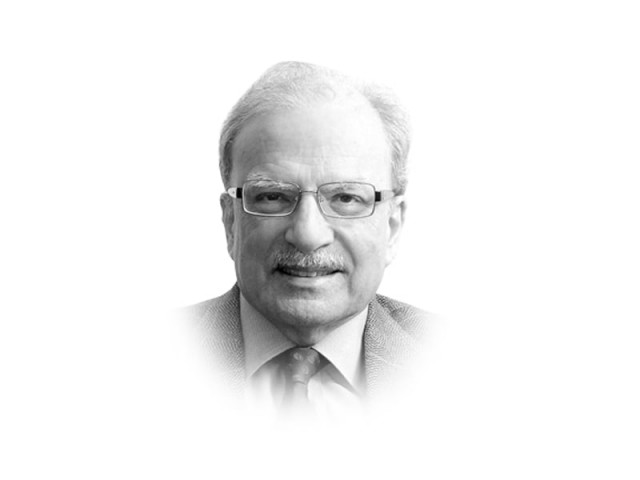The Pakistani state in its 70th year
The country is now in the process of establishing a political order that is likely to be also largely inclusive

The writer is a former caretaker finance minister and served as vice-president at the World Bank
That a state that works well will eventually create a nation out of its people is well illustrated by the case of the United States. Many Americans call themselves a “nation of immigrants.” What is striking about the large cosmopolitan places in the country such as New York, Los Angeles and Washington is the diversity of the places they call home. It is apparent from the colour of their skins, the languages they speak, the food they eat, and even the history to which they are attached. Notwithstanding this diversity, the United States works as a nation because, by and large, the state has worked to deliver most of what the citizens want from it.
Turning to Pakistan, we should ask a simple question that is not easy to answer: why has it been so difficult for the country’s citizens to go beyond their separate ethnic and religious identities? One possible answer is that the state has not settled down as an apparatus that works for all segments of the population. For the last 70 years, those who held the reins of power tried several different systems to provide what the people want. That experiment continues into the 70th year of independence.
Pakistan inherited a highly intrusive state from the rule of the Subcontinent by the British. It has remained largely so even after seven decades of independence. The intrusive state-form was brought from New Delhi to Karachi, Pakistan’s first capital, by a group of civil servants who opted to work for the new country. Many of the senior people who belonged to this group were members of the Indian Civil Service, the ICS. The ICS was often called the “steel frame” that had supported Britain’s rule over India for almost a century. There were 81 ICS officers who chose to work in Pakistan. Not all were Muslims; some from Britain, correctly sensing that they will wield more power in a politically weak Pakistan, opted to serve in that country. But the ICS was not the only British Indian service that contributed manpower to the senior echelons of the administrative structure that was being built in the new country. Ghulam Muhammad, Pakistan’s third governor general and Chaudry Muhmmad Ali, one of its early prime ministers, came from the accounts service while General Iskander Mirza was a member of the Indian Political Service. The fact that bureaucrats dominated the policymaking apparatus in Pakistan while in neighbouring India politicians were in full control was because of the maturity of the Indian political system. It was because of the control of the bureaucracy that Pakistan was able to overcome so many of the problems the country faced at the time of its birth.
In October 1958, General Muhammad Ayub Khan took control of the country and introduced the military into the bureaucratic-political system. The civil-military combination, having sidelined politicians, concentrated on developing the country’s economy. In that it succeeded, producing the highest rate of economic growth in the country’s history. But this process was disrupted by the rise of an exceptionally talented but flawed politician who, by raising the “roti, kapra, makan” slogan, was able to attract segments of the population who felt they had been left behind by Ayub Khan’s decade of development. Zulfikar Ali Bhutto did not realise that he needed a well-functioning state to deliver his promised basic needs. He failed and saw the military come back to power. General Ziaul Haq not only took power from Bhutto but also his life.
For three decades after the Zia-intervention, Pakistan see-sawed between military and civilian rule. It was in 2007 that the rule was challenged by the Pakistani version of what four years later came to be known as the “Arab Spring”. The lawyers’ movement that saw General (ret’d.) Pervez Musharraf out of the political door set the stage for Pakistan’s delayed political development. The country is now in the process of establishing a representative political order that is likely to be also largely inclusive. It promises to serve all people, not just a limited few. But for this experiment to succeed, the political system must put in place a working system that can deliver economic and social services for the entire population.
Published in The Express Tribune, September 5th, 2016.
Like Opinion & Editorial on Facebook, follow @ETOpEd on Twitter to receive all updates on all our daily pieces.















COMMENTS
Comments are moderated and generally will be posted if they are on-topic and not abusive.
For more information, please see our Comments FAQ